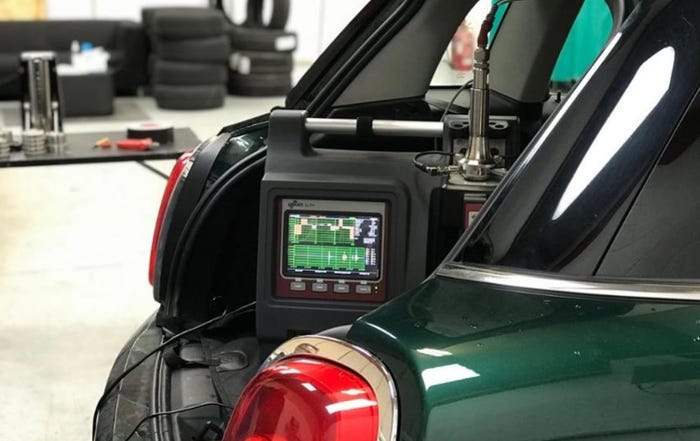U.S. Auto Makers Recall Fewer Vehicles in 2012, But Defects Rise
Toyota reclaims the dubious recall crown in 2012, bringing back an estimated 5.3 million vehicles over 16 campaigns.

Auto makers selling in the U.S. make progress on the annual volume of vehicle recalls, bringing back an estimated 13.4 million light vehicles last year compared with 14.7 million in 2011, but the total extends a streak of soaring defect numbers to four years running.
A WardsAuto analysis of National Highway Traffic Safety Admin. data shows recalls of cars and trucks fell 8.8% year-over-year, while the number of campaigns issued by auto makers increased to a 5-year high of 146 in 2012 from 130 in 2011.
Every campaign signals an individual defect, so the industry’s safety record actually could be worsening, although the record fines issued against Toyota in recent years for failing to report issues in a timely manner has the industry quick-to-the-trigger on recalls.
As recently as 2008, a year before Toyota made public widespread problems involving sticky accelerator pedals and poor-fitting floor mats, auto makers called back just 7.7 million LVs over 101 campaigns.
The top five sellers in the U.S. issued 65 recall campaigns in 2012 with implications for an estimated 11.4 million cars and trucks.
Toyota reclaims the dubious recall crown in 2012, bringing back an estimated 5.3 million vehicles over 16 campaigns. Honda had the most recalls in 2011, with an estimated 3.9 million vehicles from 17 campaigns. Toyota was a close second that year, with 3.5 million vehicles called back over 13 campaigns.
Toyota has recalled more vehicles than any other auto maker selling in the U.S. in three of the last four years. The Japanese auto maker’s recent quality record runs contrary to its history as a maker of bulletproof cars and trucks.
But the recalls targeting sticky accelerator pedals and poor-fitting floor mats of some of Toyota’s top-selling models over the last decade have thrust that quality record into question.
The auto maker’s reputation also has been tarnished by lawsuits claiming the bad accelerators and floor mats caused fatal crashes.
Last year, Toyota agreed to pay at least $1.1 billion to settle a class-action lawsuit related to the sudden-acceleration scandal of 2009 and 2010.
Toyota says it has scientific evidence of the safety of its vehicle electronics, particularly the throttle controls, but chose to settle the lawsuit so it could move forward from the issue.
The auto maker last year also was hit with the largest civil penalty ever by NHTSA, $17.35 million, for failing to report safety problems related to its floor mats. In 2010, it was fined $48.8 million in civil penalties by NHTSA related to its handling of three other recalls.
Toyota’s U.S. sales and market share climbed last year, according to WardsAuto data. It sold 2.1 million cars and trucks in 2012, up 26.6% from 2011’s 1.6 million units, and its share of the market grew to 14.4% from 12.9%. In 2008, before the string of recalls began, Toyota sold 2.2 million vehicles in the U.S. for a 16.8% share.
Toyota’s largest recall in 2012 was related to power-window switch assemblies, resulting in the callback of upwards of 2.5 million units of popular nameplates between models years ’07 and ’09, such as the Camry and Corolla cars and RAV-4 small cross/utility vehicle.
The auto maker says in a recall notice for the vehicles that the switch assemblies were built using “a less precise process for lubricating the internal components of the switch,” which could cause overheating and lead to a fire.
Toyota also conducted another pair of recalls bringing back upwards of 1.4 million vehicles due to rear-suspension and steering problems.
Two individual recalls accounted for the bulk of Honda’s 2012 recall total of 2.5 million cars and trucks. It conducted a total of 17 campaigns.
One callback targeted an estimated 807,161 of the auto maker’s popular Odyssey minivans, Pilot midsize SUVs and Acura-brand premium MDX large CUVs between the ’03 and ’06 model years. Honda says ignition switches could wear out making it possible to remove the key without the vehicle shifted into park, potentially allowing it to it roll away.
Another Honda recall brought back 625,762 units of the best-selling Honda Accord and Acura TL cars between the ’03 and ’08 models years, because prolonged and high under-hood temperatures could lead premature deterioration of the power steering hose and a potential fire.
General Motors led the Detroit Three in recalls last year, bringing back an estimated 1.5 million vehicles in 17 campaigns.
GM’s largest single recall affected a potential 426,240 units of its Chevrolet Malibu, Pontiac G6 and Saturn Aura midsize cars between model years ’07 and ’10. The auto maker says tabs on the automatic transmission shift cable could fracture and separate, making it unclear which gear is engaged and potentially lead to the vehicle rolling away after the driver exits.
Two other GM campaigns targeting ’11-’12 Chevrolet Cruze small sedans combined to capture 466,387 units for recall last year.
Ford recalled 1.4 million vehicles in 2012. The 16 campaigns it conducted included targeting 423,634 Ford Escape small CUVs from model years ’01-’04 with V-6 engines.
“Inadequate clearance between the engine cover and the speed-control cable connector could result in a stuck throttle when the accelerator pedal is fully or almost fully depressed,” the auto maker says in its recall notice to NHTSA.
A stuck throttle at high speeds could make it difficult to slow or stop the vehicle, Ford says.
Chrysler recalled 1.3 million vehicles last year over 12 campaigns, including one callback targeting 744,822 Jeep Grand Cherokees between model years ’02 and ’04 for potentially faulty airbag modules.
Read more about:
2013About the Author
You May Also Like





